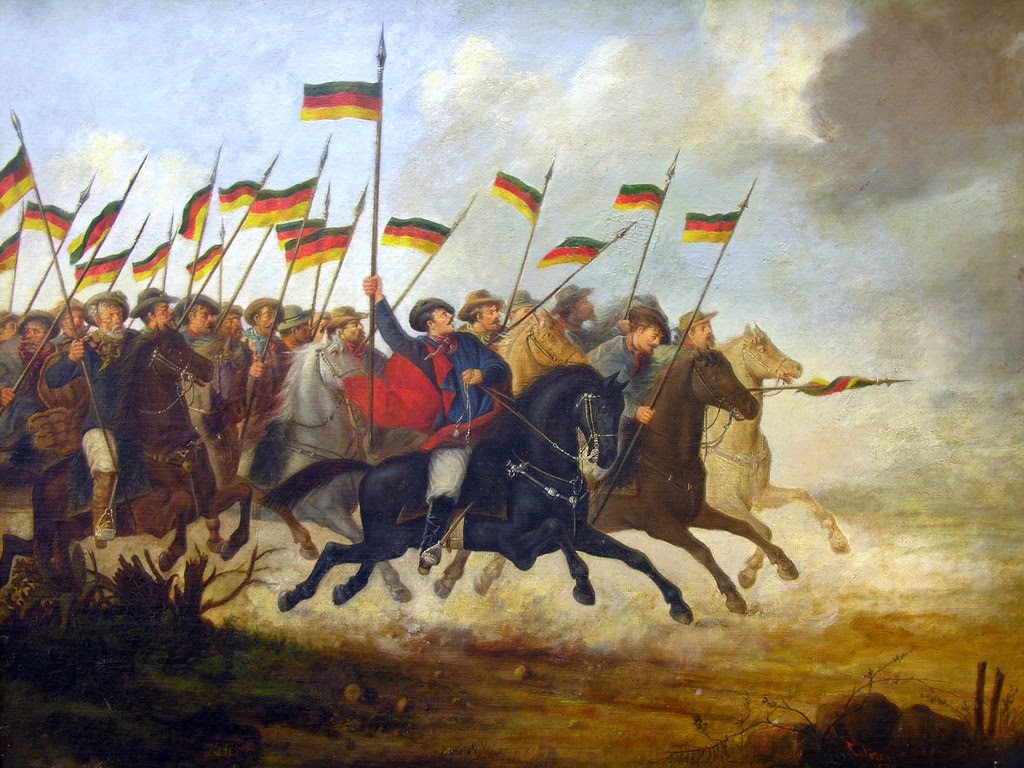I think one day I'd like to write a study on 'the nations that never were'. I've already spoken in this journal about Abkhazia, the erstwhile independent State of North-West Georgia, which has been de facto independent since the mid-90's but never quite managed to convince the world that it should actually be a State. (One of the little pecadillos of international law is that whether somewhere becomes recognised as a State or not depends mostly on flukes of history and realpolitik.) I was also recently reading at Strange Maps about Freistaat Flaschenhals, the so-called 'Free State of Bottleneck', that existed in the demilitarised Rhineland after the First World War. Sandwiched between the American and French zones of occupation into a bottleneck shape, it was notionally independent from the Weimar Republic, and even had its own stamps and passports.
Most interesting for me, because it seems to have that air of romance about it that all stories of early Brazil have, is the Piratini Republic, centred in the modern-day Brazilian state of Rio Grande do Sul, which claimed independence from 1835-1845. The following War of Tatters, as it became known, is famous mostly because Guiseppe Garibaldi, who later was the driving forced behing the unification of Italy, became involved on the side of the rebels. But there is something almost movie-like in quality about the story of gauchos and cowboys fighting for their independence from the repressive government.
You'll notice from the painting that the men in question are carrying German flags. One of the reasons for the rebellion was that the people of the Brazilian south considered themselves ethnically different from the rest of the country, being mostly of German immigrant stock. Even today, the population of the state has a distinctly German character:
Anyway, my love of alternative history has been brought up before. I sometimes like to imagine what the world would have been like had the Piratini Republic or the Free State of the Bottleneck lasted. Probably not much different, but there would have been two more countries at the World Cup, at least.
Wednesday, 10 October 2007
The Countries That Never Were
Posted by
noisms
Subscribe to:
Post Comments (Atom)



1 comment:
What a fascinating post.
Post a Comment